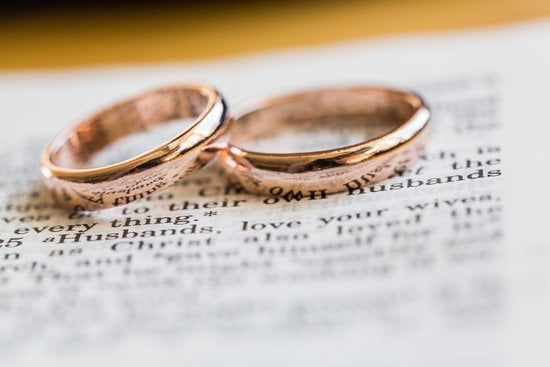Planning a wedding is a significant undertaking and requires careful consideration of various aspects to ensure that the big day goes off without a hitch. One of the most crucial decisions to make early on is when to start planning a wedding. From setting the date and creating a budget to securing vendors and managing the guest list, early planning can make the entire process smoother and less stressful.
Starting the planning process early allows couples to carefully consider all aspects of their wedding day, from choosing a date that works for both them and their loved ones to finding the perfect venue that fits their vision. Additionally, creating a realistic budget and sticking to it becomes much more manageable when there is ample time for research and careful consideration.
In this article, we will explore why it’s essential to start planning a wedding early, providing tips and guidelines for each step along the way. From setting the date and budgeting to managing stress throughout the process, we will offer valuable insights for couples embarking on this joyful but sometimes overwhelming journey towards their happily ever after. So sit back, relax, and let us guide you through the exciting world of wedding planning.
Setting the Date
Choosing the perfect wedding date is a crucial decision that sets the tone for the entire planning process. There are several factors to consider when setting the date for your big day.
Seasonal Considerations
One of the most important things to consider when choosing a wedding date is the season. Each season has its own unique charm and benefits, so it’s important to think about what kind of atmosphere you want for your wedding. Spring and summer weddings offer beautiful outdoor options and lush greenery, while fall weddings boast stunning foliage and cooler temperatures. Winter weddings can be cozy and romantic, with the possibility of a snowy backdrop.
Special Dates
Many couples choose special dates that hold significance for them, such as the anniversary of their first date or proposal. Some also opt for holidays or long weekends to take advantage of extra time off for guests traveling from out of town. Keep in mind that popular holidays may make it harder to secure vendors and could also lead to increased travel costs for guests.
Vendor Availability
It’s important to keep in mind that certain times of year are busier than others for wedding vendors. Popular venues and vendors tend to book up quickly, especially during peak wedding season which varies by location but typically falls in spring and summer months. If you have your heart set on a specific venue or vendor, it’s best to start reaching out early to secure their services.
By taking these factors into account and beginning your planning process well in advance, you’ll have a better chance of securing everything you need for your dream wedding day. It’s never too early to start thinking about your ideal wedding date.
Budgeting
Planning a wedding is an exciting time, but it can also be overwhelming, especially when it comes to budgeting. It’s important to create a realistic wedding budget and stick to it, as overspending can lead to unnecessary stress and financial strain. When to start planning a wedding budget is crucial in ensuring that all aspects of the wedding are financially covered without going overboard.
Setting a Realistic Budget
When beginning the wedding planning process, one of the first steps should be to set a realistic budget. Consider factors such as your current financial situation, any contributions from family members, and what you realistically can afford without going into debt. It’s important to have open and honest discussions with your partner about your priorities for the big day and where you’re willing to allocate the most funds.
Sticking to the Budget
Once you have established your wedding budget, it’s essential to stick to it throughout the planning process. This means being mindful of your spending and making strategic decisions about where your funds will go. Consider creating a spreadsheet or using a wedding budgeting app to track expenses and stay on top of payments. Remember that there may need to be some flexibility within your proposed budget, but do your best to avoid unnecessary expenses that can add up quickly.
Seeking Guidance From Professionals
If managing finances feels overwhelming, consider seeking guidance from financial planners or professionals who specialize in wedding budgets. These experts can provide valuable insight into how to allocate funds effectively and can help alleviate stress related to wedding finances. Additionally, they may offer tips on potential cost-saving measures or alternative options for certain aspects of the wedding that can help keep expenses within your desired budget range.
Finding the Perfect Venue
When it comes to planning a wedding, one of the most important decisions you’ll make is choosing the perfect venue. The venue sets the tone for your entire wedding day and can greatly impact the overall look and feel of your celebration.
This is why it’s crucial to start looking for a venue well in advance to ensure you find a location that fits your vision. Here are some tips for selecting a wedding venue that will be just right for your special day:
- Consider your budget: Before you start searching for a venue, it’s important to have a clear understanding of your budget. Determine how much you’re willing to spend on the venue, and then start looking for options that fall within your price range.
- Think about logistics: When choosing a venue, consider the logistics of the location. Is it easily accessible for your guests? Is there ample parking available? These are important factors to keep in mind when selecting a venue.
- Reflect on your vision: Think about the overall vibe and aesthetic you want for your wedding day. Do you envision a rustic barn setting or a modern urban loft? Keep your vision in mind as you visit potential venues to ensure they align with the look and feel you’re hoping to achieve.
Finding the perfect wedding venue takes time and careful consideration, so it’s important to start this process early on in your wedding planning journey. By taking these tips into account and beginning your search as soon as possible, you’ll be well on your way to finding a venue that perfectly reflects the vision you have for your special day. After all, once you’ve secured the perfect location, everything else will fall into place more easily.
Securing Vendors
When it comes to planning a wedding, one of the most crucial steps is securing vendors such as florists, photographers, and caterers. The timing of when to start reaching out to and booking these vendors can greatly impact the overall success of your special day. It’s important to start this process early on in your wedding planning timeline to ensure that you have the best selection and availability for your chosen vendors.
Typically, it is recommended to start reaching out to and booking vendors such as florists, photographers, and caterers at least 9-12 months before your wedding date. This timeline allows for ample time to research potential vendors, schedule consultations, and ultimately make decisions without feeling rushed. Keep in mind that popular vendors tend to get booked quickly, especially during peak wedding season, so it’s best not to delay in securing their services.
When reaching out to potential vendors, it’s essential to have a clear idea of your budget and specific needs for your wedding day. This will help you narrow down your options and make more efficient decisions during the vendor selection process. Additionally, be prepared with a list of questions to ask each vendor during consultations to ensure that they align with your vision and expectations for your special day.
Securing reliable and talented vendors is crucial in bringing your wedding vision to life. By starting this process early and being thorough in your research and decision-making, you can ensure that you have a team of trusted professionals who will help make your wedding day truly unforgettable.
Guest List and Invitations
Managing the guest list and sending out save-the-dates and invitations are crucial tasks in the wedding planning process. It’s important to start thinking about this aspect of your wedding early on, as it can greatly impact other decisions, such as the choice of venue and budgeting. Here are some tips for managing your guest list and ensuring that your save-the-dates and invitations are sent out in a timely manner.
Firstly, you’ll want to sit down with your partner and make a rough draft of your guest list. Consider who you absolutely must invite, who you would like to invite, and any plus ones that may be included.
Once you have a ballpark figure of the number of guests, you can start looking at venues that can accommodate your expected attendance. Remember that the size of your guest list will also affect your budget, so it’s important to have an estimated headcount early on in the planning process.
Next, consider whether you want to send out save-the-dates. If you have a lot of out-of-town guests or if you’re getting married during a busy time of year, sending save-the-dates well in advance is a good idea.
This gives your guests plenty of time to make travel arrangements and mark their calendars for your special day. When it comes time to send out invitations, make sure to give yourself enough time for guests to respond before finalizing catering and seating arrangements.
Finally, consider using online tools or spreadsheets to keep track of RSVPs and meal choices from your guests. Managing the guest list can be overwhelming, but staying organized will ensure that everyone receives their invitation and that you have an accurate count for the big day. By starting this process early on in the wedding planning journey, you’ll give yourself plenty of time to make any necessary revisions without feeling rushed or stressed as the wedding date approaches.
Dress and Attire
When it comes to planning a wedding, one of the most exciting tasks for many brides-to-be is shopping for the perfect wedding gown. However, finding the right dress can take time, so it’s important to start early. Ideally, brides should start shopping for their wedding gown at least 9-12 months before the big day. This allows plenty of time for browsing different styles, scheduling fittings, and making any necessary alterations.
In addition to the bride’s attire, it’s also essential to consider the groom’s attire and the outfits for the bridal party. Grooms should begin looking for their attire around 6-9 months before the wedding date.
This gives them ample time to find the right suit or tuxedo style and have any adjustments made. As for the bridal party, it’s best to start searching for their outfits around 6-9 months in advance as well, ensuring that everyone has enough time to choose their dresses or suits and have them tailored if needed.
Moreover, keep in mind that ordering attire for a wedding often takes several months due to production and delivery times. By starting early, you can avoid feeling rushed or stressed about finding the perfect outfits for your special day.
It also provides flexibility in case there are unexpected delays or changes in style preferences. Therefore, beginning the search for wedding attire well in advance can help alleviate some of the pressures associated with wedding planning and ensure that everyone looks and feels their best on this momentous occasion.
Wedding Timeline
Planning a wedding timeline is crucial to ensure that all pre-wedding events and the big day itself run smoothly. When to start planning a wedding timeline is an important consideration, as it allows for adequate time to organize and coordinate all the necessary details.
The first step in creating a wedding timeline is to identify all the pre-wedding events that will take place, such as engagement parties, bridal showers, bachelor/bachelorette parties, and rehearsal dinners. Once these events are scheduled, it’s essential to work backward from the wedding date to determine when each pre-wedding event should occur.
In addition to pre-wedding events, it’s also important to create a detailed timeline for the wedding day itself. This includes scheduling hair and makeup appointments for the bridal party, coordinating transportation for the couple and their guests, and establishing specific times for key moments such as the ceremony, cocktail hour, and reception. Creating a comprehensive timeline for the wedding day will help ensure that everything runs according to plan and that any potential issues can be addressed proactively.
When creating a wedding timeline, it’s essential to build in buffer time to account for unexpected delays or last-minute changes. It’s also important to communicate the timeline with key individuals involved in executing various aspects of the wedding, such as vendors, bridal party members, family members, and event staff. By starting early in planning a wedding timeline, couples can alleviate some of the stress associated with coordinating multiple events and ensure that their special day unfolds seamlessly.
Remember this: when to start planning a wedding? The answer is now.
Managing Stress
The period leading up to a wedding can be incredibly stressful, but it doesn’t have to be. By staying organized and managing stress effectively, you can ensure that the wedding planning process goes as smoothly as possible. Here are some tips for reducing stress throughout the wedding planning process.
First and foremost, it’s important to start early. When to start planning a wedding? The answer is as soon as possible. Starting early will give you plenty of time to make decisions without feeling rushed. This means setting a date well in advance, creating a realistic budget, and securing important vendors such as florists, photographers, and caterers early on.
Another key aspect of managing stress is staying organized. Keep detailed lists, spreadsheets, or use a wedding planning app to help you stay on top of deadlines, appointments, and tasks that need to be completed. Having a clear overview of everything that needs to be done will help alleviate feelings of chaos and overwhelm.
Lastly, don’t be afraid to ask for help. Whether it’s delegating tasks to members of the bridal party or hiring a professional wedding planner, having support can make a world of difference in reducing stress levels. Remember that this is supposed to be an exciting time in your life, so take care of yourself both mentally and physically throughout the process.
Conclusion
In conclusion, it’s clear that starting the wedding planning process early is crucial for a smooth and stress-free experience. By setting the date early and creating a realistic budget, couples can alleviate some of the major sources of stress. Additionally, finding the perfect venue and securing vendors ahead of time can ensure that they get their first choices and avoid last-minute scrambling.
Managing the guest list and sending out save-the-dates and invitations in a timely manner will also help to keep everything on track. Furthermore, beginning the search for the perfect wedding attire well in advance can prevent any last-minute fashion disasters. Creating a comprehensive wedding timeline is also essential for staying organized and ensuring that everything falls into place perfectly on the big day.
Overall, when to start planning a wedding is something that couples should carefully consider. Starting early not only allows for more flexibility and better choices but also reduces stress and anxiety throughout the process. By following these guidelines, couples will be better equipped to handle all the details leading up to their special day.
Frequently Asked Questions
How Far in Advance Should You Start Planning a Wedding?
The ideal time to start planning a wedding is around 12 to 18 months before the desired date. This allows ample time to book venues, find vendors, and make necessary arrangements without feeling rushed.
How Long Should You Be Engaged Before Getting Married?
There is no set rule for how long an engagement should be, but a typical timeframe is around one to two years. This gives couples enough time to plan the wedding and also get to know each other better before tying the knot.
When Should I Start Booking for My Wedding?
It’s best to start booking for the wedding as early as possible, especially for popular venues and vendors. For peak wedding season or in-demand locations, booking a year or more in advance may be necessary to secure your desired choices.

I have been involved in marriages for over 20 years helping couples and singles understand more about them.





